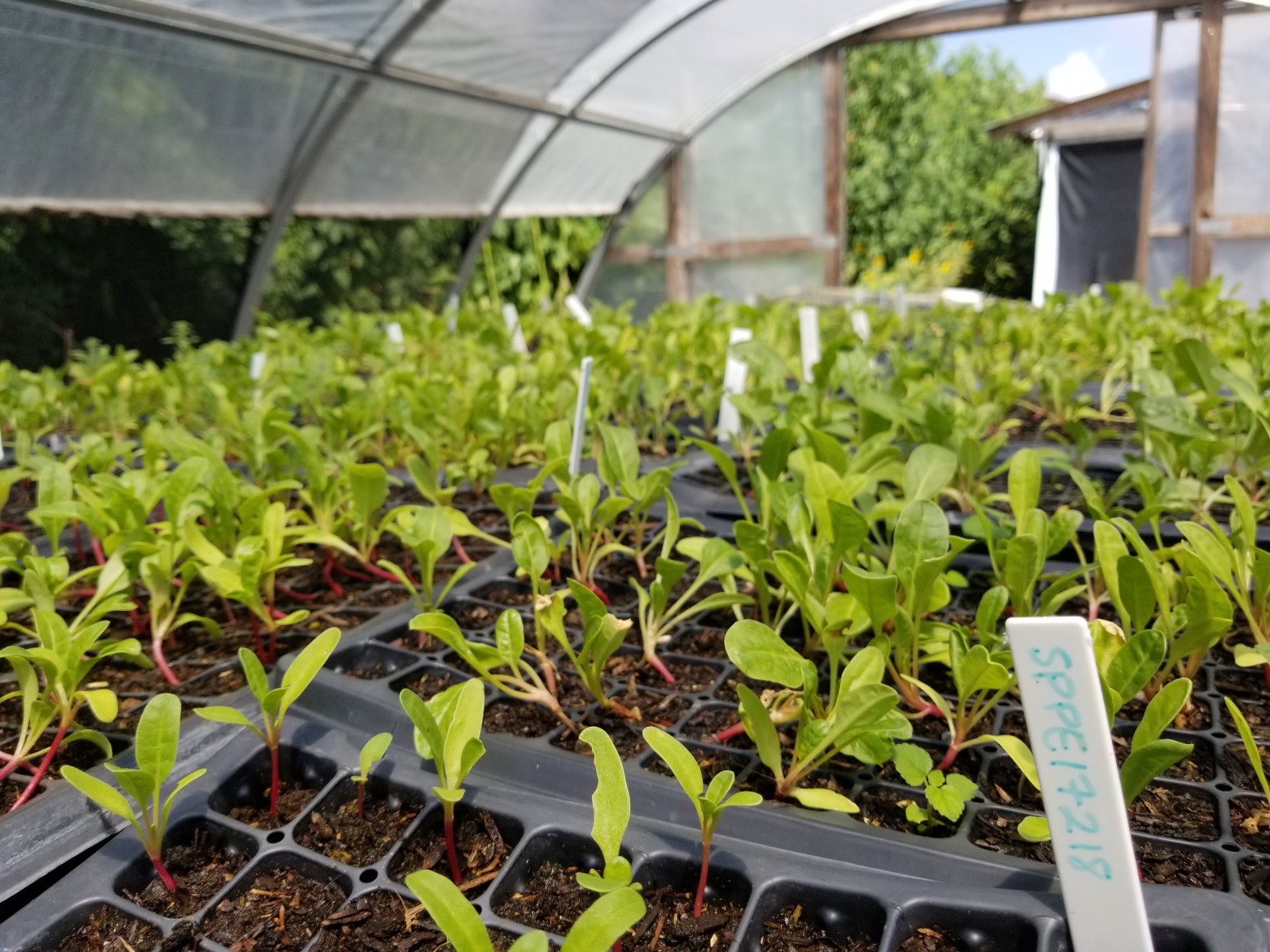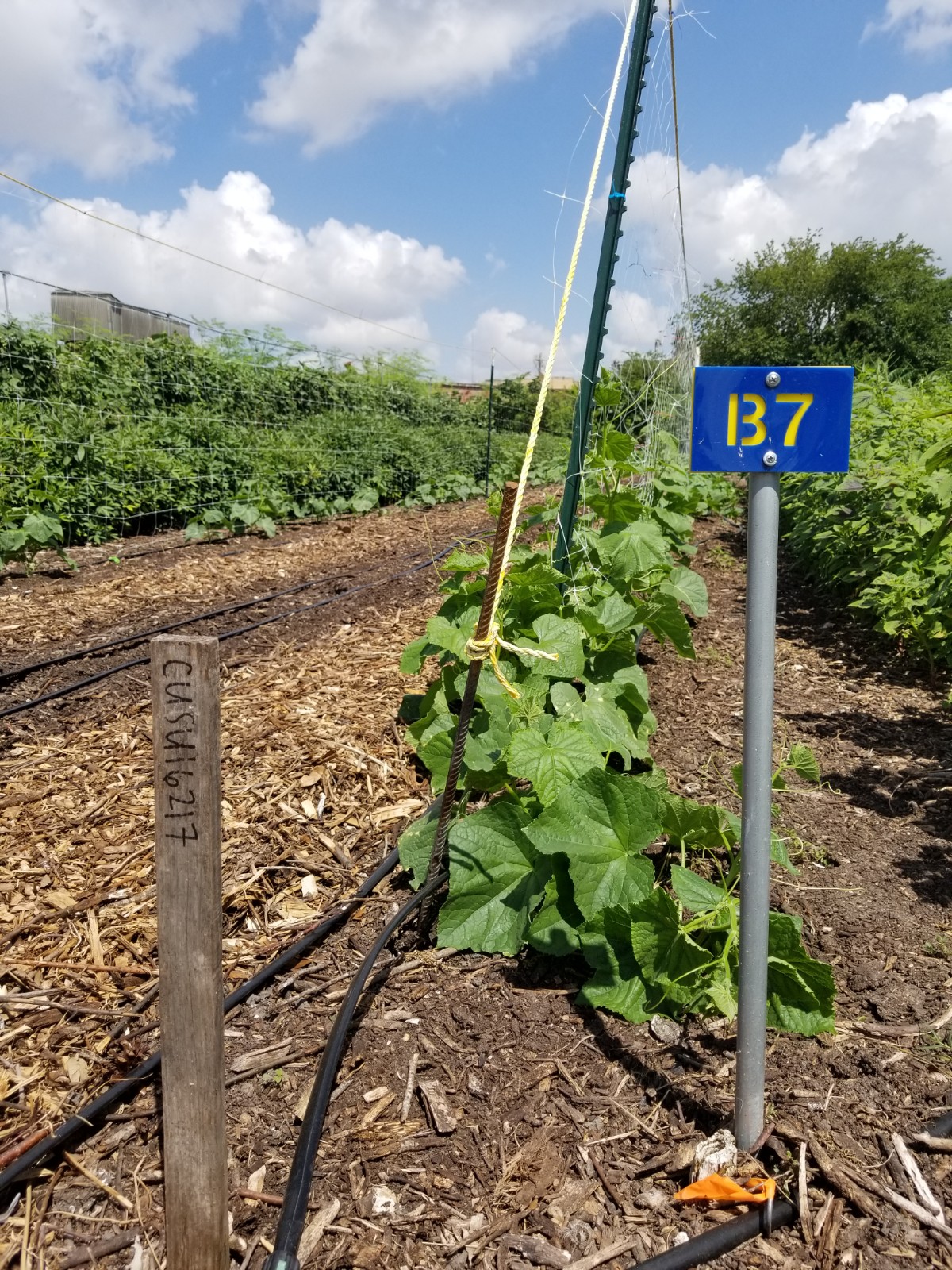I like to joke around that too often organizations “don’t like to let data get in the way of a good opinion.” On the farm and as a business, we aspire to be a process and data driven organization to always ensure quality in our products and services, efficiency in our work, and consistency in our operations.
My background is in mechanical engineering where I spent several years working in manufacturing in the medical device industry in Palo Alto and oil & gas here in Houston. As an engineer, I’ve always liked numbers but manufacturing gave me tools and experience in analyzing systems through methodologies and techniques like six sigma and lean that can use data to have such a practical, tangible effect on our products and customers.
It might seem like an urban farm would be an odd place for an engineer and I admit that I typically feel more comfortable behind a computer than in the dirt. But the farm has been a great place to take what I’ve learned and apply it in a new way that is incredibly relevant and valuable to our farm and organization. There are so many unique challenges that farming constantly introduces and our commitment to growing without the use of pesticides (even organic certified ones) means we have to do things smarter. However, the challenge is one that excites me and one I’m glad to have taken on alongside Tommy and our fantastic farm team.
From the outset, we focused on establishing farming systems that allowed us to collect data, maintain records, and increase our communication and efficiency. Houston is a unique growing climate and one that has taken us time to adjust to and learn to navigate. Experimenting to find the best varieties was the key focus for us starting off, We implemented a lot code system for traceability and created forms for seeding in the greenhouse, planting/transplanting in the fields, and harvesting, allowing us to track crops from seed to sale. Our production beds are all indexed – our five (5) fields have a letter and each bed has a number – allowing us to know exactly what was planted and harvest from where, not only allowing us to assess climate, but also providing records necessary for efficient crop rotation each season.
While some of these records are required for USDA Organic Certification and Good Agricultural Practices/Good Handling Practices (GAP & GHP) Certification, we have focused on maximizing their value to us, not just checking the boxes. I’ve worked in organizations that just check boxes and do not recognize the immense value that is being missed out on by disregarding this information as just something that has to be done to maintain this certification or meet that criteria. It’s an under-utilized resource.
But the data collection doesn’t stop at on the production side; it permeates everything we do at the farm. We send out CSA members Customer Surveys at the end of each season, hand out Field Trip Feedback forms to parents and teachers when their school visits, and collect online survey information from class attendees through TXRX Labs. Weekly as a team, we review sales numbers, harvest quantities, event leads, failed plantings, farm visitors, social media engagement, and more to hold ourselves accountable in real and measurable ways. All of these are important data points and tools for us to assess internally how our operation is running, identify and solve problems, and find new ways to improve every aspect of what we do on the farm.
These aren’t just numbers for us to look at and think are interesting – we’re a business and this information is how we select productive crop varieties, increase yield and efficiency, decrease costs and overhead, improve customer acquisition and retention. These data points and systems are where the margins are found and our business finds growth. Our goal is for these systems to continue to be refined for use at future farms in Houston and beyond that can effectively serve the communities in which they are located.


